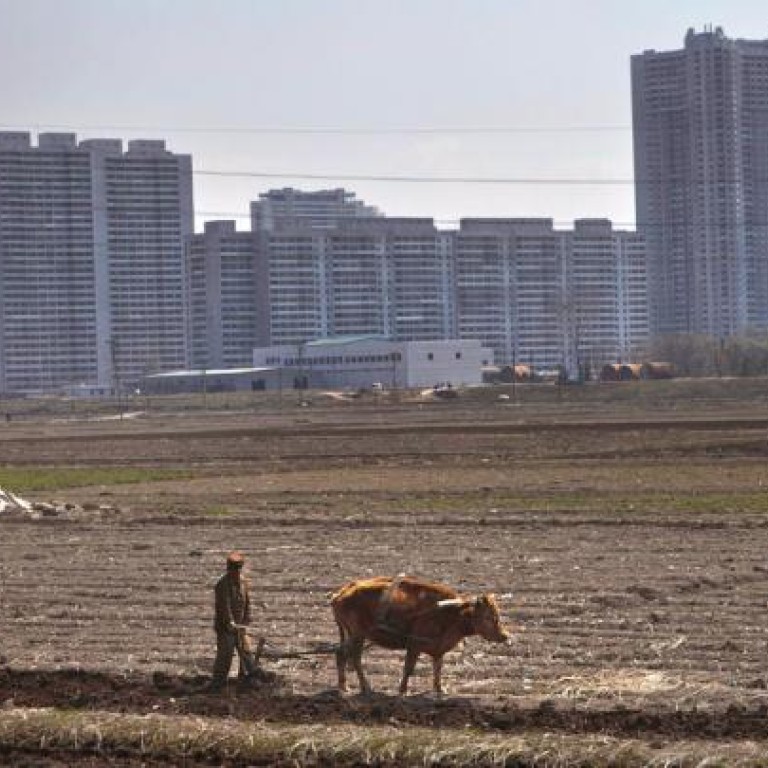
A changing North Korea will prove a headache for China
Philip Bowring says while Pyongyang's bluster is not new, the signs of its opening are, for it probably sees that the status quo is good for everyone but itself. China must stay alert
It is not an unknown unknown but, of all the world's known unknowns, the future of North Korea is perhaps the hardest to predict and hence presents China with unknown difficulties ahead.
Today's difficulty is mainly one of embarrassment, to have an ally who treats its own people with such contempt, draws communism further into the mire, and creates international incidents with nuclear and missile developments, meanwhile ignoring Beijing's mild chastisements and sensible advice.
But there are worse things in life for major powers than embarrassment. The US has plenty to be embarrassed about with the behaviour of its nuclear friend, Israel, and its shrugging off of mild chastisements over Jewish settlements. So North Korea is, for now, a small issue in China's overall standing in the world. The bigger problems are ahead.
Pyongyang's latest verbal aggressions as well as missile and nuclear tests are just more of the same tactics it has used for two decades. Deterrence abroad and repression at home is the only way to keep the regime in power. Creating supposed crises raises its status in the world without really threatening anybody.
However, the latest "crisis" has come at a particularly bad time for China, which has responded with criticism of Pyongyang and a polite reception in Beijing for the new US Secretary of State, John Kerry. The reason is simple: the past year's ramping up by China of its row with Japan over the Diaoyu Islands, and the projection of its extravagant claims over the South China Sea, have already provided reason for the US and Japan to strengthen their regional military capability and alliances. Pyongyang's behaviour has provided another.
Now Beijing can, and probably will, take a step back on the island issues but it has scant room for manoeuvre over policy towards the North, whose regime it will continue to help sustain for lack of any better option. Nor can it put the nuclear genie back in the bottle; no state has yet renounced nuclear weapons once it actually has them.
China must also face the fact of Korean nationalism. However much South Koreans detest the Pyongyang regime, there are plenty who admire its bull-headed refusal to be bullied by it allies.
The best hope for China now may be that Pyongyang's new young leader has sufficiently shown his nationalistic credentials with bombs and rockets to satisfy the public and the ageing generals who stand behind the throne. In which case, he may be able to continue the reforms he has hinted at. Mobile phones and some internet access, albeit purely domestic, are opening space for the spread of news from the real world outside. Trade with China continues to grow and even some investment has arrived.
Pyongyang is changing. The best news for China would be that economic reform not only continues but is focused on trade with China. Physical trade links the North more to China than with the South due to geography as well as the demilitarised zone that cuts the peninsular in half.
But such economic opening must also make North Koreans aware of the even greater economic advantages they could gain by merging with the South. That cannot be done overnight but the North still has the sinews of a once semi-developed industrial economy, which could easily be rebuilt with the South's know-how and access to money.
The pull of Korean nationalism is strong. In their different ways, Koreans on both sides are equally nationalistic, with the South being fortunate that it was mentored by the US (and indirectly by post-war Japan) while the North was mentored by Mao and Stalin. Now there is no geopolitical reason for the nation to be divided, only the self-interest of the Kim family and system, plus the fear of unpredictable change there felt in South Korea, China and the US.
The status quo suits everyone except the suffering North Koreans. Kim Jong-un probably recognises that he must try to be an agent of change. The risk that he is buried in the implosion of the system is high. Change is dangerous. But maybe he has a long-term game plan; perhaps to bring about reunification and so preserve something of the family name by exchanging power for an honoured place in history and fat bank accounts for the leading army and party functionaries?
Korea can never be a large nation but the combination of the South's global impact on technology and on popular culture with the energy that a reviving northern region - which also has a younger population - could provide is a prospect that is not without problems for Beijing.
The existence of a Korean minority in northeast China could be an added issue. Just possibly, China would bring all of Korea into its economic and even cultural orbit as a counterweight to the US and Japan through trade and shared anti-Japanese sentiment. But that looks unlikely given other components in the regional power balance, including Russia and Korea's historical preference to play China and Japan off against each other.
Meanwhile, China cannot be the undisputed leader of its region unless it can forego nationalist bluster and have friendly relations with Japan and thus marginalise the US role. But that too depends on what happens in Korea over the next decade - the great known unknown.

